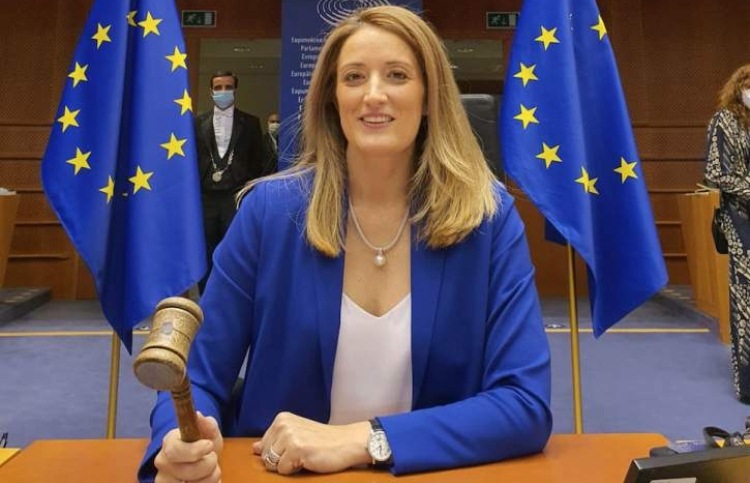The Diplomat
The President of the European Parliament, Roberta Metsola, has called for an evaluation of the economic impact that the use of Catalan, Galician and Basque would have in the plenary sessions of the European Parliament, in order to have sufficient data before making a decision on the officialisation of these languages, repeatedly requested by the Spanish Government.
According to parliamentary sources reported to the Europa Press agency, Metsola raised this issue yesterday Monday with the rest of the Parliament’s Bureau in Strasbourg (France). At the meeting, the president also reported on the latest letter sent by the Spanish Government in favour of this measure, sent at the end of September by the Minister of Foreign Affairs, José Manuel Albares.
The evaluation will be carried out by the Working Group of the Bureau on Citizens’ Language and Linguistic Services, which includes five vice-presidents of the European Parliament, including the Spaniards Esteban González Pons (PP) and Javi López (PSC) and which was created before September. The group is chaired by the Slovak liberal Martin Hojsík and its other members are the French leftist Younous Omarjee and the Italian far-right Antonella Sberna, from ECR.
According to the cited sources, Metsola has not set a date for the conclusion of the impact assessment, but the work could last “months rather than weeks”, although, in any case, within the current legislature. The aim is to have clear data on the cost that translation in plenary sessions would entail in terms of personnel and infrastructure, but also to assess other associated elements, such as whether there would be sufficient qualified personnel to ensure interpretations of the three languages.
To date, Albares has sent three letters to Roberta Metsola on this matter. The first was sent in September 2022 and the second in March 2024. Currently, there are already “administrative arrangements” within the Council and the European Commission that allow the translation of many of their documents into the co-official languages. According to the minister, the start of the new legislature constitutes a “privileged opportunity” to make progress on what he defines as “a priority issue” for Spain”, according to Europa Press.
Albares’ efforts before the European Parliament coincide with those initiated by the Government to achieve the modification of the European linguistic regime with a view to making Catalan, Basque and Galician official within the European Union, thus fulfilling one of the commitments between the President of the Government, Pedro Sánchez, and the Catalan independentists of Junts to obtain their support in the vote of investiture.
The General Secretariat of the European Commission has estimated the cost of making Catalan, Basque and Galician official in the community institutions at around 132 million euros. To convince the rest of the European partners, Spain has offered to assume the costs of translation and interpretation of the three languages in the EU and has insisted that the reform would be limited “exclusively to the case of Spain” and, therefore, would not give rise to other languages of other countries being covered “by this reform if the Member State does not wish it”.







